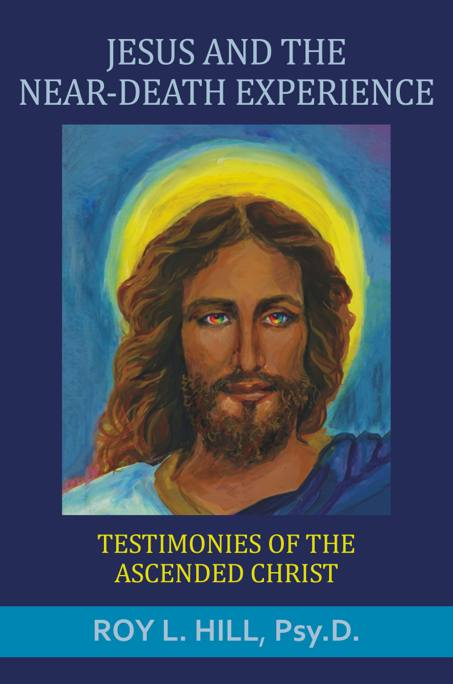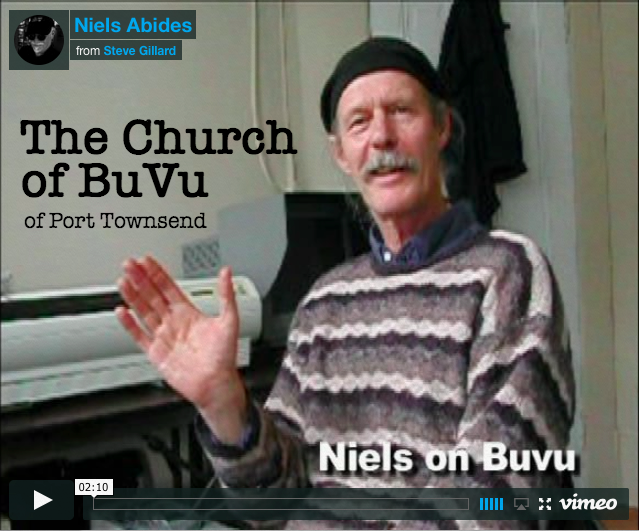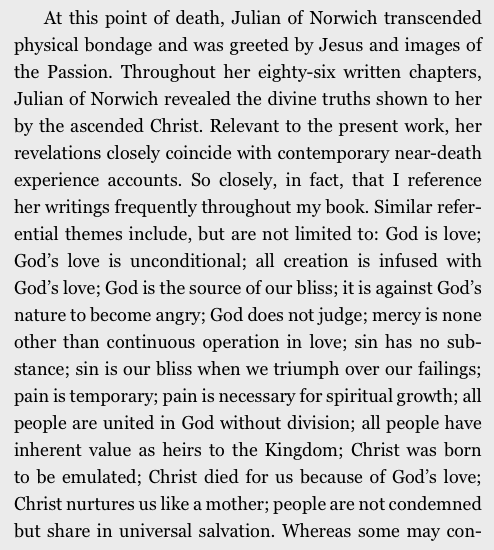For those readers who consider “serious” discussions of God, Jesus, the Afterlife, etc., as if they are “real”, to be infantile or based in superstition or magical thinking, you’re excused. No hard feelings. Bye. Thanks for dropping in for a sentence or two. Or you can hang around for giggles. Whatever.
I confess to a bias formed from treating these things as real from the time I could understand English, being reared in a fundamentalist Christian household and, much to my chagrin, being required to attend church at least three times a week.
I’ve long since parted ways with Christian fundamentalism and a literal interpretation of the Bible. But, I retain a paramount interest in the life and teachings of Jesus, and I maintain an ongoing belief that we transcend our bodies and have an “afterlife,” although talking about consciousness transcending bodies in terms of “before and after” is a mite ridiculous, since time and space are limited concepts to begin with and probably don’t apply to consciousness.
I am an avid reader of Near Death Experience accounts. (NDEs). Furthermore, I am accustomed to the standard of proof we lawyers call “by a preponderance of the evidence.” I.e. for cases where that standard is applicable (most non-criminal cases), judges and juries award millions of dollars to plaintiffs, cause property to be transferred from one person to another, evict renters, put people in involuntary commitment to institutions, etc., etc., so long as evidence of the right to make such decisions is “more likely than not to be true.”
What makes it “more likely than not to be true?” If you put the reasons for believing something is true in one column, and the reasons for not believing it in another column, if the “Believe” column has 51 entries and the “Don’t Believe” column has 49 entries, then the “fact” or evidence being offered is deemed proven to be True.
If you’re interested, one good book about this is God and the Afterlife: The Groundbreaking New Evidence for God and Near-Death Experience by Jeffrey Long.
On that basis I am prepared to believe many NDEs are True. This belief helped me (re)form my conviction that Jesus is worthy of my attention and my efforts to understand him and his teachings, after about 20 years of intellectual rebellion, from roughly age 40 to 60. I’ve changed my thinking because so many NDEs include the experiencer meeting up with Jesus in the visitors area of the Afterlife.
That was all a long explanation to get to this: I’m just starting into what appears to be the first effort by anyone to write a book devoted exclusively to NDEs and Jesus. The name of the book is, guess what, Jesus and the Near Death Experience. It’s by Roy L. Hill, a clinical psychologist.

In the introductory chapter(s) of his book, Mr. Hill points out that one of the revered mystics in the Catholic tradition, and the first woman author to be published in English (I didn’t fact check that), Julian of Norwich, wrote extensively and eloquently about her own NDE. Here’s the part that I love the best, so far, gleaned from Julian’s writing:
That’s it. That’s my answer if anyone, (including my worried mother), wants to know what I believe, whether I’m still a “Christian”, in spite of the fact that I don’t attend church or read the Bible much. Theologically I’m a Universalist: Everybody makes it into the “heavenly” parts of the Afterlife if they want to be there. Whether they ever heard of Jesus or not, whether they considered themself an Atheist, whether they have a rap sheet that requires a gigabyte thumb drive to store, or … what the hell ever. Everybody makes it in. It’s impossible not to make it in. We’re all one with Jesus. If he’s there, we’re there. Badabing, badaboom. End of story.
Cheers,
BuFoon Steve Gillard

